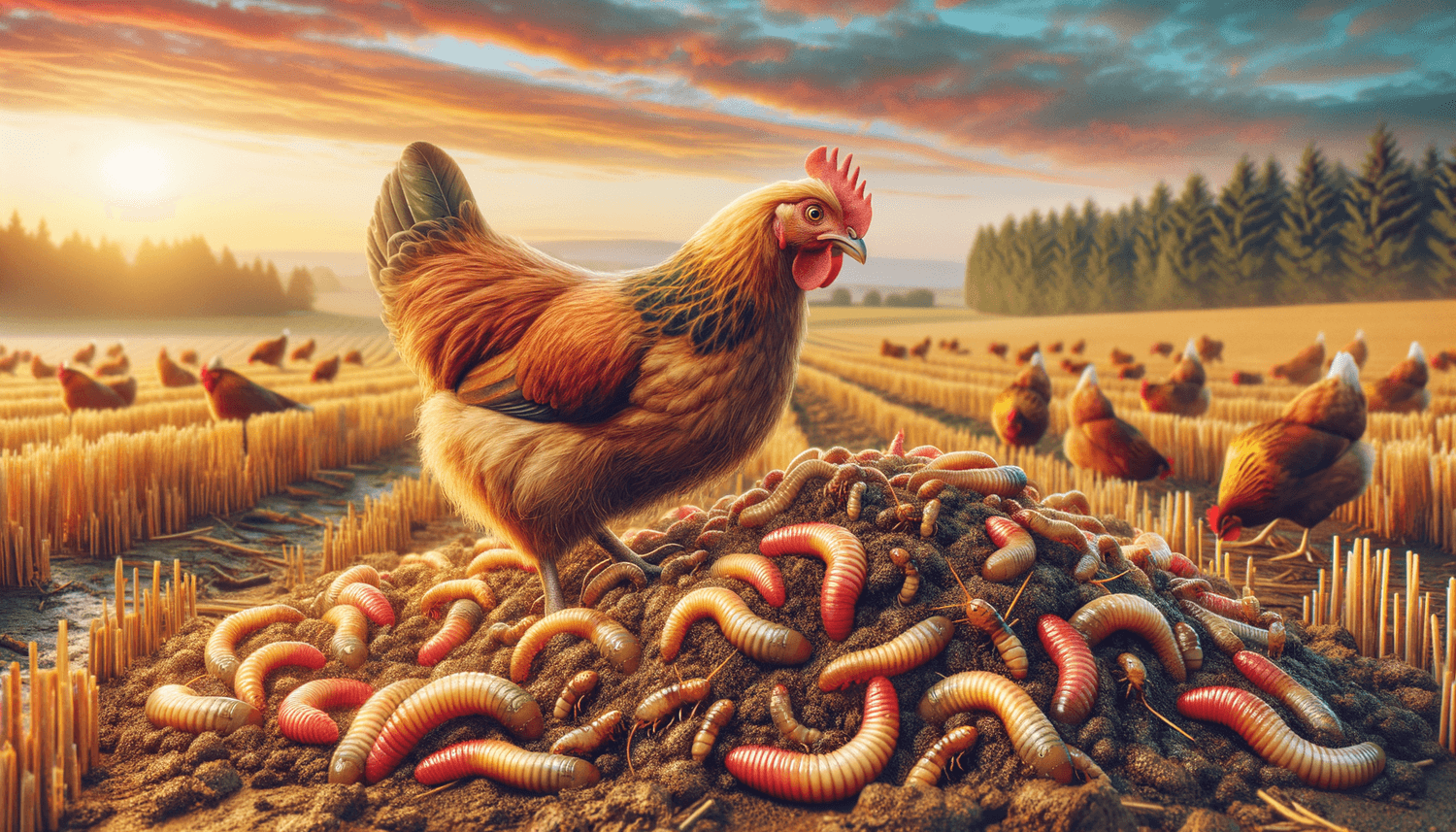Are you tired of those pesky little grubs wreaking havoc on your carefully manicured garden? Well, you may be in luck: your backyard feathered friends might be the perfect solution! Let’s cluck and peck our way through the delicious scoop on chickens snacking on succulent grubs! In this fun-filled blog post, we’ll dig into whether your chickens can eat grubs, the importance of a balanced diet, the potential benefits and risks, the nutritional value of these squishy little morsels, and even how to prepare them to make your flock’s taste buds sing! Gardeners, chicken enthusiasts, and grub-loathers unite, because this party is just getting started!
Can chickens eat grubs?
Yes, chickens can safely eat grubs! These little critters are a natural part of a chicken’s diet and provide a nutritious source of protein. Chickens peck at and scratch the ground in search of grubs and other insects, making these wriggly treats not only a tasty snack but also an environmentally friendly pest control solution for your garden.
A balanced diet for happy chickens
Just like us humans, chickens need a balanced diet to stay healthy and thrive. A well-rounded diet is essential for their well-being and ensures they maintain a robust immune system, produce quality eggs, and live a happy life. One of the key components of a healthy chicken diet is chicken feed, which should make up around 80-90% of their daily food intake. High-quality chicken feed contains all the essential nutrients, vitamins, and minerals they need for proper growth and development.
The remaining 10-20% of your chickens’ diet can be supplemented with treats like fruits, vegetables, and yes, even grubs! These tasty morsels help diversify their diet, provide interesting foraging opportunities, and give your flock a delightful change of pace. However, it is important to remember not to overdo it with the treats, as an imbalance in their diet can lead to health issues or nutritional deficiencies. So, moderation is key when it comes to offering your chickens a smorgasbord of tasty options beyond their staple chicken feed.
Nutritional value of grubs for chickens.
Feeding grubs to chickens not only provides them with an enjoyable snack, but also offers substantial nutritional benefits. Grubs are rich in protein, which is essential for chickens’ overall health, growth, and egg production. In fact, grubs contain around 40% protein – making them a fantastic supplement to a chicken’s diet. Chickens are natural foragers, and grubs provide them with an opportunity to stretch their legs and engage in their innate foraging behavior, resulting in both mental and physical benefits for your backyard flock.
Grubs are also a source of vitamins, minerals, and fatty acids that are beneficial for chickens. They contain healthy fats, which provide a concentrated source of energy and help with immune system function, vibrant plumage, and egg quality. Additionally, grubs offer hydration as they are relatively high in water content, which is essential for a chicken’s digestive system and overall health. While grubs may not provide all the necessary nutrients that your chickens need, they certainly contribute to an enriching and varied diet that complements their regular chicken feed.
Nutrition table of grubs for chickens.
| Information | Description |
|---|---|
| Nutritional Value | Rich in protein, vitamins, minerals, and healthy fats |
| Suggested Serving Size | Make up a small portion of their diet (10-20%) |
| Safe Feeding Practices | Ensure grubs are free from pesticides and chemicals |
| Preparation | No preparation needed, serve raw or dried grubs |
| Potential Risks | Overfeeding can lead to nutritional imbalance |
| Hydration | Grubs are relatively high in water content, aiding hydration |
| Digestion | Easily digestible resource of nutrients, beneficial for chickens’ health |
| Seasonal Availability | Most commonly available in warmer seasons, may be found year-round in some locations |
| Other Benefits | Provides mental stimulation and encourages natural foraging behavior |
Preparing grubs for your chickens
One of the great things about feeding grubs to your chickens is that there’s no additional preparation required. You can simply collect grubs from your garden, or purchase them from a reputable supplier, and let your chickens enjoy their tasty treat! However, it’s essential to ensure the grubs are clean and free of pesticides or other harmful chemicals. Both fresh and dried grubs can be served without the need for cooking or further processing.
Introducing grubs to your flock
When introducing any new food item to your chickens, take a gradual approach in order to avoid upsetting their digestive system. Start by offering a small quantity of grubs and observe your flock’s behavior and appetite as they become more familiar with their new treat. As your chickens grow accustomed to eating grubs, you can continue to adjust the quantity to ensure it remains within the recommended 10-20% of their diet.
Grubs as a natural pest control solution
Besides being a beneficial and nutritious treat, allowing your chickens to eat grubs can also help keep your garden and outdoor spaces clean and free of harmful pests. Grubs are the larvae of various beetle species and can cause damage to the roots of your plants, ultimately resulting in wilting and weakened growth. Having chickens on the hunt for these squirming critters will not only keep your flock happy and well-fed, but also protect your garden from potential grub-induced devastation.
In conclusion, grubs are an excellent addition to your backyard chickens’ diet as they offer numerous nutritional benefits, foster natural foraging behavior, and may even help protect your garden. Happy grub hunting and feeding!

















